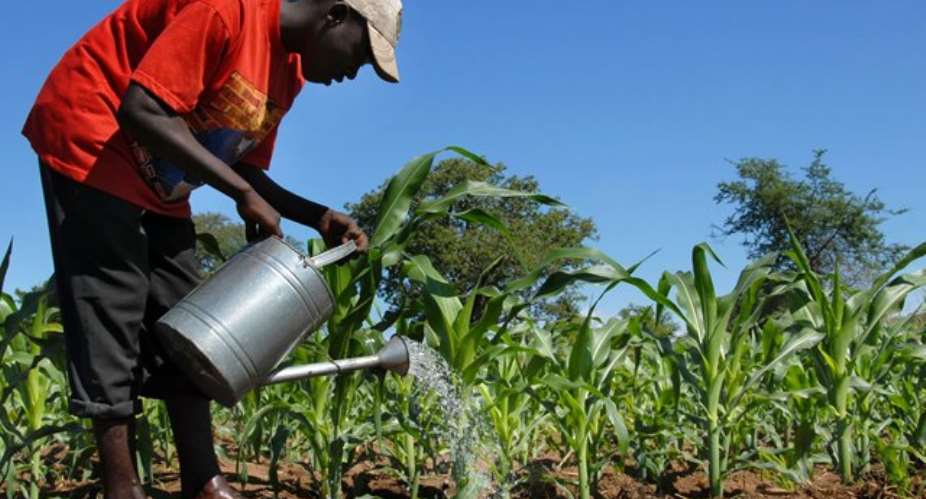The President of the Chamber of Agribusiness, Anthony Morrison, has argued about the need for a regulatory body to supervise activities of the agriculture sector as it is with other sectors of the economy.
Mr Morrison believes the Ministry of Food and Agriculture has become too huge to take on all the country’s growing agricultural demands for which reason such a framework was needed if the country was serious about putting agriculture and agribusiness back on the map of performing sectors.
GDP from agriculture in Ghana increased to GHS 7790.18 million in 2016 from GHS 7567 million in 2015. It averaged GHS 6541.21 million from 2006 until 2016, reaching an all-time high of GHS 7790.18 million in 2016 and a record low of GHS 5422 million in 2007.
Mr Morrisson made the call in an interview with Goldstreet Business on the challenges and prospects of the agriculture sector.
“Can’t we have the agriculture authority that regulates trade and standard, so that the Ministry would just focus on policies for the sector? If we want to put Ghana’s agriculture and agribusiness back on the map, we need to come up with a regulator.”
The Agriculture Chamber President referenced the arrangement at the Ministry Of Energy having the National Petroleum Authority, Petroleum Commission, as well as the Energy Commission as regulators.
He also advised on the need to start taking stock of all agriculture lands which he thinks must be part of the remit of the regulatory authority.
Morrison expressed worry that notwithstanding vast expanses of arable land with access to large resources of freshwater, such as Lake Volta, there is no farmer with 100,000 hectares on a stretch, a very common situation in other countries where farmers own about 200,000 hectares of agriculture lands.
In spite of the immense opportunities in the sector, investors are faced with about 27 constraints that are problematic and likely to prevent successful private investments.
A World Bank diagnostic report last year revealed that transformational foreign direct investments (FDI) in the country’s agribusiness sector are yet to materialize.
The situation in the sector exists despite the opportunities, together with a vibrant local entrepreneurial class of actors involved in commercial agriculture and the distribution of food products.
The existence of a regulator may help enhance FDI flow into the sector.





 'Kill whoever will rig Ejisu by-election' – Independent Candidate supporters inv...
'Kill whoever will rig Ejisu by-election' – Independent Candidate supporters inv...
 Ashanti Region: ‘Apologize to me for claiming I owe electricity bills else... – ...
Ashanti Region: ‘Apologize to me for claiming I owe electricity bills else... – ...
 Ghana is a mess; citizens will stand for their party even if they’re dying — Kof...
Ghana is a mess; citizens will stand for their party even if they’re dying — Kof...
 Internet shutdown an abuse of human rights — CSOs to gov't
Internet shutdown an abuse of human rights — CSOs to gov't
 Free SHS policy: Eating Tom Brown in the morning, afternoon, evening will be a t...
Free SHS policy: Eating Tom Brown in the morning, afternoon, evening will be a t...
 Dumsor: A British energy expert 'lied' Ghanaians, causing us to abandon energy p...
Dumsor: A British energy expert 'lied' Ghanaians, causing us to abandon energy p...
 What a speech! — Imani Africa boss reacts to Prof. Opoku Agyemang’s presentation
What a speech! — Imani Africa boss reacts to Prof. Opoku Agyemang’s presentation
 Dumsor: Tell us the truth — Atik Mohammed to ECG
Dumsor: Tell us the truth — Atik Mohammed to ECG
 Dumsor: Don't rush to demand timetable; the problem may be temporary — Atik Moha...
Dumsor: Don't rush to demand timetable; the problem may be temporary — Atik Moha...
 Space X Starlink’s satellite broadband approved in Ghana — NCA
Space X Starlink’s satellite broadband approved in Ghana — NCA
